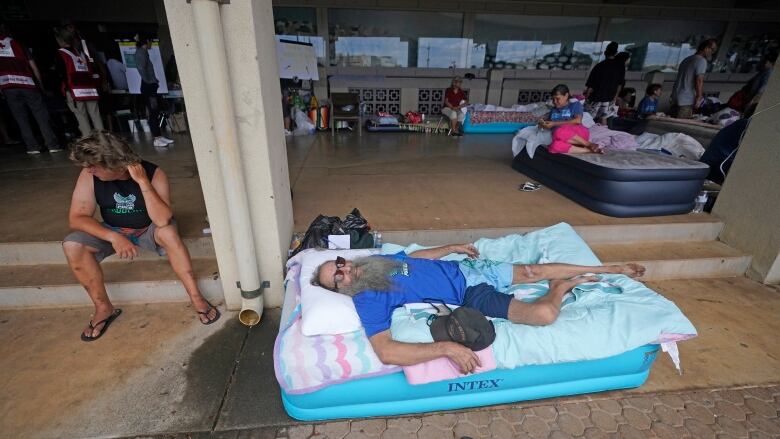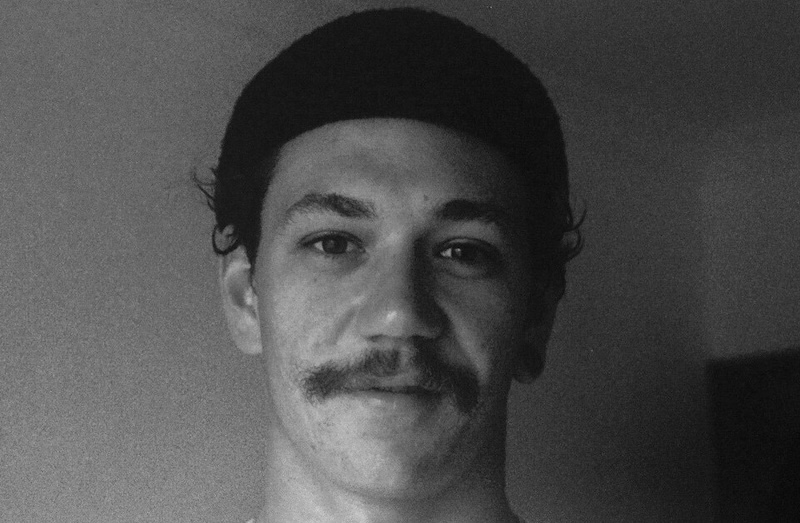Outside Honolulu’s Hawaii Convention Centre, where thousands of cots are set up to welcome wildfire survivors, Jesse Jaspal’s voice wavered as he thought back to his old neighbourhood in Lahaina on the island of Maui, which was destroyed by the flames.
“My whole neighbourhood’s gone, the neighbourhood I lived at. All my neighbours, my friends,” he told CBC News’s Makda Ghebreslassie from Hawaii’s capital on Oahu.
“I get choked up about it … I don’t know what to say. It’s a gut wrench.”
Jaspal struggles to keep his composure. He says every time he hears from someone saying they’re safe, it’s a relief. But it’s not enough.
“A lot of people evacuated with just the clothes on their backs, and they lost everything. Many people lost their homes, their animals, dogs, cats, some horses,” he said.
“And there’s a lot of people that are still missing.”

Seeking shelter on other islands
The fires burned more than 1,000 buildings in the town of Lahaina on the island of Maui. It has turned the centuries-old hamlet beloved by travellers and locals alike into a charred, desolate landscape.
The Hawaii fires have claimed 67 lives, according to Maui’s county government. The total is expected to rise.
Jaspal was on the island of Oahu when the wildfires overtook Lahaina.
He is a member of the Red Cross disaster assessment team welcoming stunned tourists and residents as they arrive at the convention centre on buses in need of shelter.
“Their faces say enough. It’s the look of fright, terror. You know, you’re going through a traumatic experience — wildfires, smoke, infernos, wind gusts of 50, 60 miles an hour, and just sheer pandemonium and chaos,” he said.
“But I’m here, here on this island, so we can help the people that are coming, so that’s my holy grail.”
The convention centre is prepared to accept up to 4,000 people.
Historic homes burned to the ground
Thousands of visitors fled Maui after wildfires ravaged their hotels and resorts earlier this week, disrupting their beach vacations.
But long after the tourists return home, the wildfires will have a lasting impact on residents of Lahaina, Hawaii’s former capital. Historical sites dating back to the 1700s have been lost, along with multi-generational family homes.
La Phena Davis lived in a home that had been in her family for four generations. She fled north in a car with only her laptop and a few important papers; her grandparents, daughter and grandchildren were also evacuated.
La Phena Davis, who lost everything in the Maui fires, says she ‘can’t even imagine’ her family will return to their community in Lahaina, even if they want to.
When Davis’s son-in-law returned to the house, he watched it burn to the ground.
“I really have nothing,” she told CBC News. “I’m not going to be able to claim any insurance on my items or anything.”
‘I’ve got nothing left’
Retired mail carrier and Vietnam veteran Thomas Leonard lived in the historic town for 44 years until this week, when a rapidly moving wildfire burned down his apartment, melted his Jeep and forced him to spend four terrifying hours hiding from the flames behind a seawall.

“I’ve got nothing left,” Leonard said Thursday.
He sat on an inflatable mattress outside a shelter for those who fled the blaze that decimated the town.
“I’m a disabled vet, so now I’m a homeless vet,” he said with a small laugh.
‘We’ll keep struggling’
By the time Marlon Vasquez heard the alarms, there was only time to run.
The 31-year-old cook shouted for his brother and opened the door of their Lahaina rental home to thick smoke and intense heat.
“The fire was almost on top of us,” he said.
Wildfires have devastated much of the Hawaiian island of Maui, killing dozens of people. Andrew Chang highlights harrowing stories of people who lived through it.
The two sprinted. Day turned to night as smoke blotted out the sun, occasionally bared as a red orb. Roads clogged with cars. People dove into the Pacific Ocean. At one point, the flames chased them as strong winds blew them down a mountainside. The air was so black that Vasquez vomited.
“We ran and ran. We ran almost the whole night and into the next day because the fire didn’t stop,” Vasquez said.
The brothers kept running down the coast until they came upon a motorist who drove them to a shelter where they joined about 200 others in a gymnasium.
The restaurant Vasquez worked at was destroyed. He only managed to grab his passport, wallet, a few bottles of water and a can of sardines.
He arrived in the U.S. from Guatemala at the start of 2022. Now, his car and everything he worked for has been torched.
Vasquez isn’t sure if the roommates he and his brother lived with made it out. He wonders about the people they passed who were unable to run as they did. He doesn’t know where they will go next.
“We’ll keep struggling,” he said.
Waiting for help in the water
Leonard, the retired mail carrier, said he didn’t know about the fire until he smelled smoke from his apartment on Front Street and went outside to investigate.
He had been in an information vacuum all day after the power went out early Tuesday morning, leaving him and neighbours without electricity, internet and cellphone service.
A flotilla of jet skis set off from Maalaea on the southwest coast of Maui accompanying a boat loaded with emergency supplies for residents of Lahaina. The jet skis were seconded by tourism operators and were needed to deliver the infant formula, diapers, fuel and other supplies to the shore because docks were damaged by Tuesday’s wildfire.
The county’s emergency sirens — which warn people of the need to evacuate in the event of tsunamis and other natural disasters — didn’t sound.
Leonard grabbed his wallet, keys and credit cards and jumped in his car to leave, only to find a traffic jam. He waited, hoping that the line of vehicles would move, until the cars ahead of him started exploding one by one.
“My Jeep had a soft top, and I knew it was going to go. And I just said, ‘I’m out of here,’ ” he recalled.
The 74-year-old ran to the seawall that shields the town from encroachment from the ocean, joining about 70 others. About 20 of them jumped into the water to escape the flames. Leonard said he felt safer crouched down next to the wall on the ocean side, where he could let the wind carry hot ash over him.
Even so, cinders seared holes in his shorts and shirt, and he suffered burns on his legs.
“There were flames coming and sparks everywhere,” he said.
One person at the seawall flashed an SOS signal out to the ocean, which Leonard said alerted the Coast Guard. The Coast Guard contacted Maui firefighters, who then escorted the group on foot through the flames to a supermarket parking lot at about 9:30 p.m.
A propane tank exploded down the block shortly after they passed through.
“It was just like, boom, a gigantic mushroom at that house,” he said.
As Hawaii Gov. Josh Green put it in an interview with The Associated Press: “Lahaina, with a few rare exceptions, has been burned down.”
























Discussion about this post